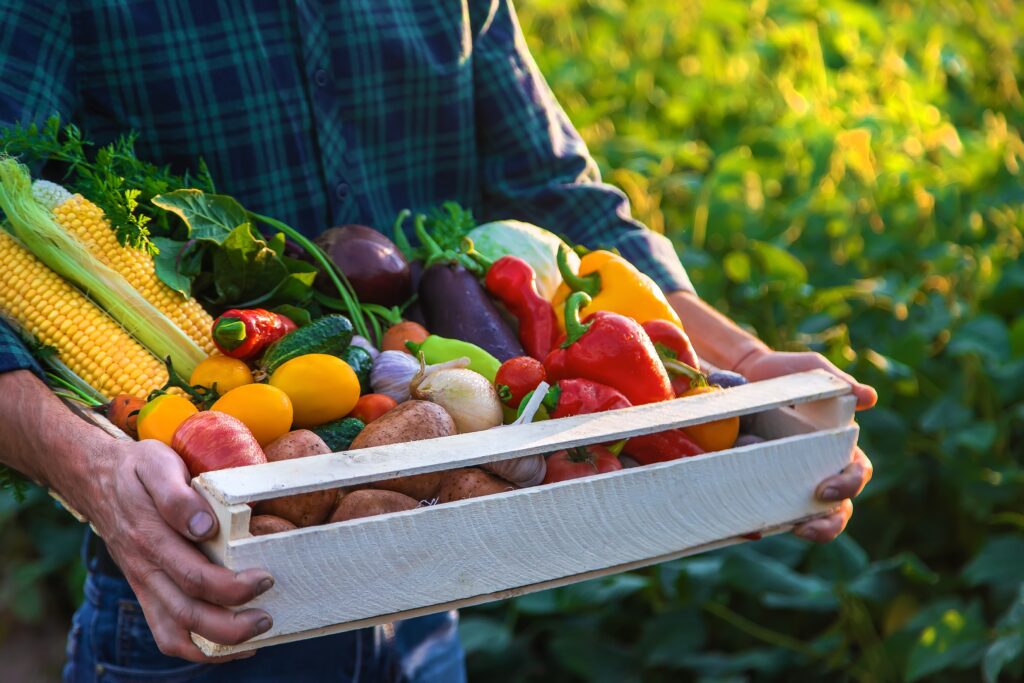In recent years, the farm-to-table movement has been gaining momentum in the culinary world. It’s more than just a trendy catchphrase; it represents a fundamental shift in the way we think about and approach our food. Farm-to-table dining is about more than just where you eat; it’s a commitment to sustainability, local communities, and the pursuit of fresh, wholesome flavors. In this blog post, we’ll explore the farm-to-table movement in-depth, examining its principles, benefits, and how you can embrace it in your own dining experiences.
The Essence of Farm-to-Table
At its core, farm-to-table dining is about shortening the gap between where our food is produced and where it’s consumed. Instead of relying on a complex and often non-transparent supply chain, farm-to-table seeks to connect consumers directly with local farmers and producers. Here are some key principles that define the essence of this movement:
- Locally Sourced Ingredients
The cornerstone of farm-to-table dining is using locally sourced ingredients. This not only supports local farmers but also ensures that the food you consume is fresh and at its peak flavor. By reducing the distance food travels, you also decrease its carbon footprint. - Seasonal Menus
Farm-to-table restaurants often feature seasonal menus that change according to what’s locally available at any given time. This encourages diversity in your diet and promotes sustainability by reducing the need for out-of-season produce to be transported long distances. - Sustainable Practices
The farm-to-table movement places a strong emphasis on sustainable farming and production practices. This includes organic farming methods, responsible water usage, and ethical treatment of animals. - Community Engagement
Farm-to-table dining fosters a sense of community by creating direct relationships between consumers, chefs, and local producers. It’s not just about a meal; it’s about understanding where your food comes from and the people behind it.

The Benefits of Farm-to-Table Dining
Embracing a farm-to-table dining experience offers a wide range of benefits, not only for your palate but also for the planet and local economies. Let’s explore these advantages in more detail.
- Fresher, More Flavorful Food
When you dine at a farm-to-table restaurant or purchase local, seasonal ingredients, you’re getting food at its peak freshness. The flavors are vibrant, and the nutritional value is often higher compared to foods that have traveled long distances. - Support for Local Economies
Farm-to-table dining supports local farmers, growers, and producers. This infusion of income into local economies helps preserve farmland, promotes job opportunities, and strengthens the social fabric of communities. - Environmental Sustainability
By reducing the distance that food travels to reach your plate, you’re cutting down on carbon emissions associated with transportation. Additionally, many farm-to-table practices prioritize eco-friendly farming methods, reducing the environmental impact of food production. - Transparency and Food Safety
Farm-to-table dining encourages transparency in the food supply chain. You’re more likely to know where your food comes from and how it was produced, which can lead to greater confidence in its safety and quality. - Unique Culinary Experiences
Seasonal menus at farm-to-table restaurants often lead to unique dining experiences. You’ll have the opportunity to explore a wider variety of flavors and dishes based on what’s available at any given time.
How to Embrace Farm-to-Table Dining
Now that we’ve highlighted the benefits and principles of farm-to-table dining, let’s discuss how you can actively embrace this sustainable culinary movement.
- Support Local Farmers’ Markets: One of the easiest ways to start your farm-to-table journey is by shopping at local farmers’ markets. Here, you can purchase fresh, seasonal produce directly from growers in your area.
- Choose Farm-to-Table Restaurants: Seek out restaurants that prioritize locally sourced ingredients and seasonal menus. These establishments often work closely with nearby farms and producers to bring you the freshest dishes.
- Join a Community Supported Agriculture (CSA) Program: CSA programs allow you to subscribe to regular deliveries of fresh, locally grown produce from nearby farms. It’s a convenient way to access seasonal ingredients while supporting local agriculture.
- Grow Your Own Food: If space permits, consider starting a small garden at home. Even growing a few herbs or vegetables on your windowsill can connect you more closely with your food.
- Educate Yourself: Learn about the farming practices in your area and the challenges faced by local farmers. Understanding the food system in your community can deepen your appreciation for farm-to-table dining.
- Cook at Home: Experiment with recipes that feature locally sourced ingredients. Cooking at home allows you to control the sourcing of your ingredients and explore your culinary creativity.
- Advocate for Sustainability: Support policies and initiatives that promote sustainable farming practices and local food systems. Your voice can contribute to positive change in your community.
Farm-to-Table Success Stories
To truly grasp the impact of farm-to-table dining, let’s explore a couple of inspiring success stories: - The Blue Hill at Stone Barns, New York: This renowned restaurant takes the farm-to-table concept to another level by growing much of its produce on-site. Diners are treated to a seasonal menu that’s a true reflection of the farm’s bounty.
- Osteria Francescana, Italy: Chef Massimo Bottura, whose restaurant has three Michelin stars, is known for his commitment to local and sustainable ingredients. His dishes tell a story of the Emilia-Romagna region’s culinary heritage.
These examples demonstrate how farm-to-table dining can result in culinary excellence while upholding sustainability and supporting local communities.
The Future of Farm-to-Table
As the demand for fresh, locally sourced food continues to grow, the farm-to-table movement is poised for an exciting future. More farmers, chefs, and consumers are recognizing the importance of sustainable and ethical food practices. Farm-to-table dining isn’t just a trend; it’s a reflection of our evolving relationship with food and our planet.
In conclusion, embracing a farm-to-table dining experience offers a multitude of benefits, from fresher and more flavorful food to support for local economies and a reduced environmental footprint. By actively seeking out local, seasonal ingredients and supporting restaurants and initiatives that prioritize sustainability, you can become a part of this transformative movement. Farm-to-table dining isn’t just about what’s on your plate; it’s about the positive impact it can have on our world. So, why not take a step towards a more sustainable and delicious dining experience today?


